Related Research Articles
The Swedish National Space Agency is a Government agency in Sweden operating under the Swedish Ministry of Education and Science. SNSA operates as a key component of the Swedish space programme, which is mostly carried out through international cooperation, and has included a sequence of satellite missions, both national ones and in cooperation with other nations. Furthermore, the agency distributes government grants to research and development, initiates research and development in space and remote sensing, and acts as the Swedish contact in international cooperative efforts.
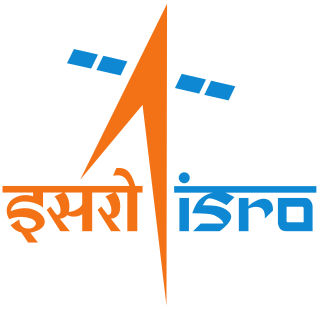
The Indian Space Research Organisation is the national space agency of India. It operates as the primary research and development arm of the Department of Space (DoS), which is directly overseen by the Prime Minister of India while the Chairman of ISRO also acts as the executive of DoS.

Cochin University of Science and Technology (CUSAT) is a state government-owned autonomous university in Kochi, Kerala, India. It was founded in 1971 and has three campuses: two in Kochi and one in Kuttanad, Alappuzha, 66 km (41 mi) inland.

The Vikram Sarabhai Space Centre (VSSC) is a major space research centre of the Indian Space Research Organisation (ISRO), focusing on rocket and space vehicles for India's satellite programme. It is located in Trivandrum, in the Indian state of Kerala.
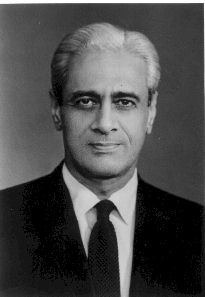
Satish Dhawan was an Indian mathematician and aerospace engineer, widely regarded as the father of experimental fluid dynamics research in India. Born in Srinagar, Dhawan was educated in India and further on in United States. Dhawan was one of the most eminent researchers in the field of turbulence and boundary layers, leading the successful and indigenous development of the Indian space programme. He succeeded M. G. K. Menon, as the third chairman of the Indian Space Research Organisation (ISRO) in 1972. The second launch pad of ISRO, Satish Dhawan space centre is named after him. He is greatly regarded as the man behind A. P. J. Abdul Kalam.
India's remote sensing program was developed with the idea of applying space technologies for the benefit of humankind and the development of the country. The program involved the development of three principal capabilities. The first was to design, build and launch satellites to a Sun-synchronous orbit. The second was to establish and operate ground stations for spacecraft control, data transfer along with data processing and archival. The third was to use the data obtained for various applications on the ground.

Mylswamy Annadurai is an Indian scientist working as vice president for Tamil Nadu State Council for Science and Technology, Chairman, Board of Governors, National Design and Research Forum. He is often dubbed as the "Moon Man of India".
The Indian Institute of Remote Sensing is an institute for research, higher education and training in the field of remote sensing, geoinformatics and GPS technology for natural resources, environmental and disaster management. The institute was established in the year 1966 under the Indian Department of Space. It is located in the city of Dehradun, Uttarakhand.
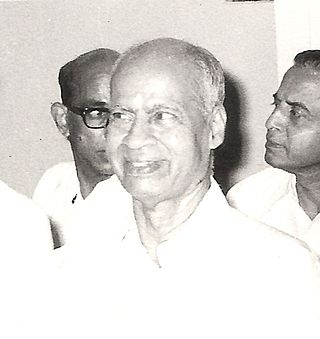
Pisharoth Rama Pisharoty was an Indian physicist and meteorologist, and is considered to be the father of remote sensing in India.

The Space & Upper Atmosphere Research Commission, commonly referred to as SUPARCO, is an agency of the Government of Pakistan responsible for the national space program.
G. Madhavan Nair is an Indian space scientist and a former Chairman of the Indian Space Research Organisation, and Secretary to the Department of Space, Government of India. His tenure saw commencement of Indian Human Spaceflight Programme and launch of extraterrestrial exploration mission Chandrayaan-I.
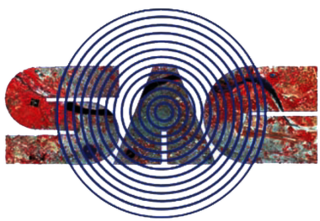
Space Applications Centre (SAC) is an institution of research in Ahmedabad under the aegis of the Indian Space Research Organisation (ISRO). It is one of the major centres of ISRO that is engaged in the research, development and demonstration of applications of space technology in the field of telecommunications, remote sensing, meteorology and satellite navigation. This includes research and development of on-board systems, ground systems and end user equipment hardware and software. SAC has three campuses, two of which are located at Ahmedabad and one at Delhi. The current director of the centre is Mr Nilesh M Desai.
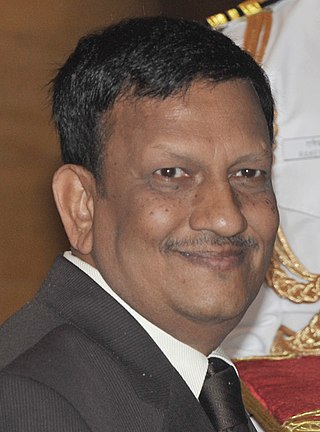
Dr. S. K. Shivakumar was an Indian Distinguished Scientist from Karnataka state who worked at the Indian Space Research Organisation (ISRO) centres. He was awarded the Padma Shri, the fourth highest civilian award of India, in 2015.

Koppillil Radhakrishnan is an Indian space scientist who headed the Indian Space Research Organisation (ISRO) as Chairman of Space Commission, Secretary of the Department of Space, Government of India. Under his leadership, India became the first country to reach Mars in its first attempt.
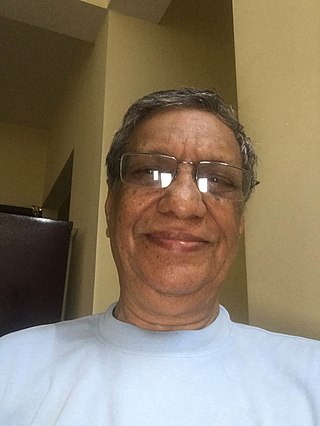
Prem Chand Pandey is an Indian space scientist, planetary scientist, and academic in the fields of satellite oceanography, remote sensing, atmospheric science, the Antarctic and climate change, and also he is the founding director of the National Centre for Polar and Ocean Research (NCPOR).

The Prime Minister's Office (PMO) consists of the immediate staff of the Prime Minister of India, as well as multiple levels of support staff reporting to the Prime Minister. The PMO is headed by the Principal Secretary, currently Pramod Kumar Mishra. The PMO was originally called the Prime Minister's Secretariat until 1977, when it was renamed during the Morarji Desai ministry.

George Joseph is an Indian space scientist, best known for his contributions to the development of remote sensing technology in India, especially in the field of Earth observation sensors. He is a former chairman of the Lunar Mission Study Task Force of the Indian Space Research Organization and an elected fellow of the National Academy of Sciences, India, Indian Academy of Sciences and Indian National Academy of Engineering. The Government of India awarded him the Padma Bhushan, the third highest civilian award, in 1999.
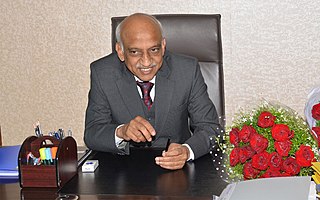
Aluru Seelin Kiran Kumar is an Indian space scientist and former chairman of the Indian Space Research Organisation, having assumed office on 14 January 2015. He is credited with the development of key scientific instruments aboard the Chandrayaan-1 and Mangalyaan space crafts. In 2014, he was awarded the Padma Shri, India's fourth highest civilian award, for his contributions to the fields of science and technology. Kiran Kumar previously served as Director of Ahmedabad Space Applications Centre.
ISRO Satellite Integration and Testing Establishment (ISITE) is an integrated satellite testing facility established under the aegis of ISRO Satellite Center by Indian Space Research Organisation in 2006. Started with an area of 1000 sq ft. at the time when the Aryabhatta satellite was launched, the testing facility is spread over 100-acre and can integrate and test six satellites of the INSAT class at different stages simultaneously: 2 communications, 2 remote sensing and 2 foreign satellites. The investment on the facility is so far about Rs 220 crore and ISRO plans to make a further investment of Rs 100 crore. The facility has also carried out vibration and acoustic tests of Mars Orbiter Mission (MOM) spacecraft.
There are several Indian Space Research Organisation (ISRO) facilities all over India. ISRO headquarters in Bangalore provides overall direction for the organization. There are more than twenty facilities which support ISRO.
References
- ↑ "JOINT POLICY COMMITTEE of ISRO-IIT(B) SPACE TECHNOLOGY CELL" (PDF).
- 1 2 "Status of Ongoing RESPOND Programme".
- ↑ Aryan, Aniket. "RESPOND Program : ISRO | SRIRAM's IAS". www.sriramsias.com. Retrieved 2023-11-23.
- ↑ "Sponsored Research (RESPOND)".
- ↑ "Respond Program for space sciences".
- ↑ "LPSC RESPOND (Sponsored Research) Manual" (PDF). Bangalore. 1 May 2016.
- ↑ "RESPOND@SAC".
- ↑ Raj, Ganesha. "Sponsored Research Programme of ISRO : Objectives" (PDF).
- ↑ "isro funding".
